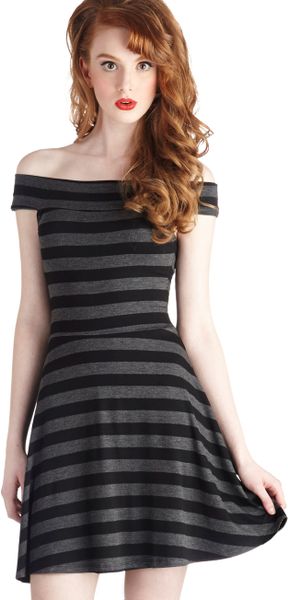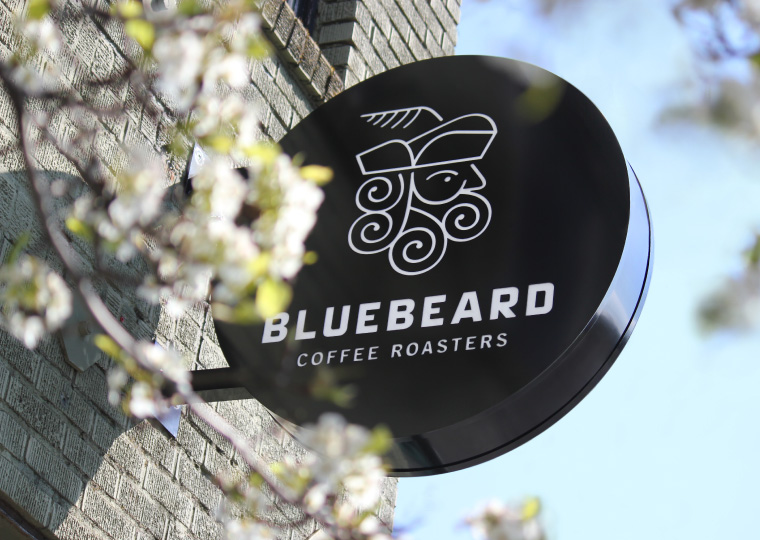Lately I've been noticing this huge paradox in our culture when it comes to attitudes towards fairy tales. As I've previously discussed, referring to something as a "fairy tale" can often be a very negative thing, insinuating that it is naive, childish, or anything that implies life will be perfect. The ironic thing is that 95% of fairy tale content usually involves shocking amounts of abuse, violence, and sexuality, and that includes even the most sanitized versions by Grimm or yes, even Disney.
But at the same time, fairy tales are incredibly popular and used all the time in advertising. For example, the Geico commercials I just posted refer to fairy tales (disclaimer: no, Pinocchio is not technically a fairy tale, but closely related/often mistaken as such). Partly because fairy tales are common ground-general knowledge that pretty much everyone is familiar with; and I'm sure the fact that they're not copyrighted has something to do with it. But it's more than that too. Remember this fairy tale commercial playlist? For decades companies have used fairy tale motifs to sell their products, and companies don't want to be associated with childish and immature stories-they want people to connect with positive images related to their products.
It's not just commercials, either. One of my guilty pleasures is to online shop at sites like Modcloth, where I regularly see clothes and accessories given a fairy tale-inspired name, even if the piece really has nothing to do with a particular fairy tale.
Happily Ever After party dress
Flair-y Tale boot
The clock strikes midnight gloves
Trail as Old as Time Top
Play fair-y dress
You get the idea.
Another thing I find interesting has to do with the new movie "Frozen". No, I haven't seen it yet, but from what I've heard the plot has virtually nothing to do with its original inspiration, Andersen's "Snow Queen". Sure, a snowy setting and glass shards-from what I gather only vague references. Yet they still credit Andersen's story as their source, when they could easily have marketed it as an original idea. So why even bother to say it's a fairy tale, especially a more obscure one? Did they think more people would be interested in another Disney fairy tale interpretation than a new hit feature with an original script?
When you keep your eye out for them, you find fairy tale references everywhere. I even just found out about this coffee shop in Tacoma, Washington called Bluebeard coffee. I can't find any reference to the story or why they would have named it after a fairy tale character, especially one of such ill repute...it's possible this is one of the instances where Bluebeard was confused with either Redbeard or Blackbeard the pirates, but I would hope a little more research went into the name of their store than that.
If I kept looking I could find dozens more products that reference fairy tales for no apparent reason, and then of course there's the whole line of products that ARE directly linked to fairy tales. It's no secret that fairy tales have been the source of many recent movies and t.v. shows as well. Clearly people are drawn to them and companies count on that to make their products more appealing. So my question is, how does that fit in with the very negative light many people also view fairy tales in, revealed by their vocabulary if not a conscious opinion? Do you think that with so many fairy tales being brought into focus in mainstream media and not just a side genre, that people will start to have more respect in general for fairy tales?








hi, i love your blog! just discovered it today. was wondering... who is the artist of the image at the top of the page, a young girl hugging a large animal on the ice? thanks!!
ReplyDeleteBecause calling something that's improbable a fairy tale has been around for about two hundred years or more, I think people still like to use it. But they use it in a different context than they would for a wonderful story they love.
ReplyDeleteBy the way, they didn't exactly say Frozen was "based" on the Snow Queen. They actually said it was "inspired" by the Snow Queen. Very different words. At first it was going to be based on the Snow Queen but then they started asking questions about who the Snow Queen was and how she had gotten to be this way etc. etc. and then they ventured away from the original story. They never said it was "based" on the Snow Queen. I suppose people liked using fewer syllables to try to repeat what they said.
But the movie was actually very good (and the snowman doesn't become a character till about halfway into the movie). Give it a shot and tell us what you think. (:
Marianne-thank you so much! The illustration in the header is from my favorite children's book version of Beauty and the Beast, written by Max Eilenberg and illustrated by Angela Barrett.
ReplyDeleteWriter4Christ-I guess it takes a long time to get something out of our vocabulary and there are a lot of other phrases we don't mean literally, although a lot of times I feel like there is a very negative, almost bitter feeling towards fairy tales when spoken of that way.
And "inspired" definitely is different than "based" on, although I guess I still think it's interesting they chose to put that in the credits of the film, given how vastly different it ended up being. Most films are inspired by many different sources which might be acknowledged by the creators in interviews and other sources but not necessarily given screen time.
And yes, I keep hearing from EVERYbody that it's such a good movie and I need to see it! I plan to eventually :)
I agree, its such a paradox. I see fairy tales appropriated for all sorts of marketing here, but I still feel like I ought to be embarrassed when I say I write them/about them. I usually hedge it with '...and folk stories'. One day I'll say it loud and proud ;)
ReplyDeleteGreat post, really interesting and thought provoking.
ReplyDeleteI think that fairy tales being used to market products isn't necessarily a bad thing, as it re-packages them for different audiences and keeps them alive in the public eye. However, I think that it distracts from the original tales and creates a stereotypical fairy tale image, which forgets most of the traditional content of the stories and just uses common motifs associated with them. So whilst it make them popular it doesn't stay true to their nature.
I don't think it makes people view them in a negative way, just perhaps an ignorant one as they don't know the real stories behind the images the media is giving them.
A.L.-I feel the same way; I often avoid mentioning the fact that I have a fairy tale blog to people! And when I do I'm quick to add that I research their history, as if that makes it more legitimate and academic. I should be more proud too :)
ReplyDeleteAmy Willow-"whilst it makes them popular it doesn't stay true to their nature"-such an interesting thought to ponder. For us who are fairy tale fans, in one sense we're glad more people are being exposed to fairy tales and thinking about them in different ways. But as you point out, it can also be a drawback. That's probably partly why people like A. L. Loveday and I (see above comment) feel a sense of embarrassment/shame about admitting our love for fairy tales! That part is definitely unfortunate.
I think that the reason why many companies tend to use fairy tales to market their products is because they want to sell the very idea of "happily ever after" to their clients. Perhaps we may be skeptical of the idea of "happily ever after," but as far as marketing goes, companies want to ensure that people will be happier buying from them. If you think about the wedding industry, for example, much of the idea of the dream wedding is centered around the bride being the "princess" and that the wedding is the day for her to realize her "full princess potential," so to speak. Therefore, many wedding companies tend to stress this idea in their marketing.
ReplyDeleteI don't, of course, speak for all the reasons why companies like using fairy tales; I just wanted to elaborate on one possible reason. I do think, though, that fairy tales can offer really important lessons, and part of the reason why we may be so attracted to them is the way the stories, however unusual or shocking they may be, manage to put them into the context of something mystical and interesting to read.
Yes, the concept of "happily ever after" is a huge association many people have with fairy tales, and it's definitely BIG in the wedding industry. I always like to point out that fairy tales are not exclusive in the whole happily ever after idea. *Most* stories from *most* genres end with some sort of resolution, if not an implied sort of perfection.
ReplyDeleteHumans long for a sense of hope, justice and resolution, and that is portrayed in SO many of our stories. And yet the most negative, shallow connotations of happily ever after is still primarily designated to fairy tales.
Honestly, I sometimes have trouble figuring out what people think of fairy tales in general. At first, it seemed like people regarded them as being not only too childish but also too tame with the implication that they're all like very fluffy animated musicals. Then, suddenly someone picked up a copy of Grimm's Fairy Tales and suddenly people are talking about how dark and gruesome they are. Never mind that it's also an over-generalization (seriously, I can name a number of stories from Grimm that have hardly any gruesome scenes at all). Then there's the feminist viewpoint for years that they set bad examples for young girls (At which point I point people toward "Tatterhood" and "Li Chi Slays the Serpent") and the traditional male view that they're "girl stories" (at which point I point boys toward "How Six Men Got On in the World" and "The Water of Life"). In fact, that's probably where my own trepidation for admitting I have a fairy tale blog (geekily-ever-after.blogspot.com) can come from. Not the view that they're childish but the view that they're feminine. I have to be one of very few men in the fairy tale blogosphere. And as soon as any such view becomes common, it's likely to change back.
ReplyDeleteAs for marketing, I'd agree with what others said. Popular fairy tales are a common ground for people and they suggest both a sense of the fantastic but also a positive outcome to whatever conflict arises.
Adam-you point out how incredibly complex society's opinions of fairy tales are, and it's so true. Society is made up of completely unique individuals, and the canon of fairy tales is vast enough that the selection of fairy tales you've been exposed to can color your opinion about them in one way or another. I guess I shouldn't be surprised at differing viewpoints and opinions-not everyone is a slave to the popular opinion (nor should they be!)
ReplyDeleteAnd way to be a male presence in such a female-dominated territory! You can join Jack Zipes :) How ironic that the classic collections of fairy tales were all compiled by men, and now it's almost exclusively females willing to spend time analyzing them?
Home listings and homes for sale near your area.
ReplyDeleteFind your perfect property advertised by owner or real estate agent.
More details homes for sale in greensboro nc
Look up THE RED MAGE BOOK OF FAIRY TALES on Amazon.com if you want a good one
ReplyDelete